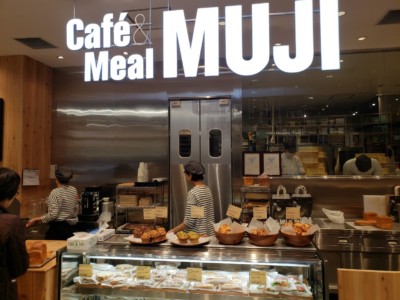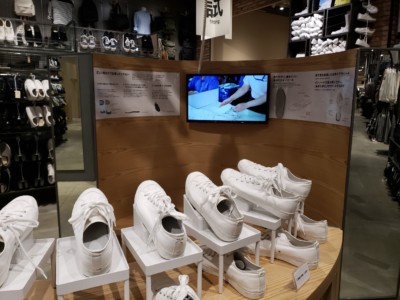Muji Spreads its Wings
31 Jan 2019Muji is an amazing retail concept and a fabulous example of a retailer who succeeds with a strong point of view. Roughly translated as “without adornment” from Japanese, Muji was founded in 1980 with a goal to create simple, low-cost, good quality products by viewing an item through three lenses: material selection, inspection process, and packaging simplification. Muji has become one of the most recognized Japanese brands overseas due to their minimalist and natural product design that is offered at a reasonable price. Muji products manage to be both simple and sophisticated at the same time.
If you happen to visit a Muji outside of Japan, you will likely encounter a smallish (5,000 square feet or so) store focused on core Muji categories like housewares and apparel. However, the newer Muji stores in Japan have expanded significantly into new merchandise categories and are pushing the boundaries into how far the brand can stretch. At 45,000 square feet, the latest store in Osaka is billed as the largest Muji in the world.

What’s different?
- The most striking addition is the significant increase in food, particularly with fresh product. While Muji has sold snack foods, sauces and candy in the past, the addition of fresh produce, seafood and baked goods is striking. While the brand attributes do work in fresh, it is certainly more difficult to control products, from distribution to control of in-store displays.
- They also have moved more aggressively into foodservice. There are multiple areas in the store to eat, from a buffet style meal, to menu service and quick to go options. While this adds to the experience, I’m not sure it contributes much to the brand ethos.
- There are other areas where the store falls a bit flat. Once they get into a selection of branded grocery products, Muji no longer seems to be a relevant fit. Do I really need to buy Skippy Peanut Butter from them? And there is a significant amount of repetition in the product mix which suggests they have more store space presently than they know what to do with.
That said, Muji continues to shine by creating a transparent link between the consumer and the end product. A case in point is the focus on a single product (a sneaker) and showing the manufacturing process down to an impactful display of the end product:

DaVinci once said that “simplicity is the ultimate sophistication”. That notion describes Muji perfectly. It will be interesting to see if they can maintain that philosophy as they expand into disparate businesses from fresh foods to the newly launched Muji Hotels, which was recently featured in the latest edition of Retail Innovations, available here.
Source: McMillanDoolittle.com